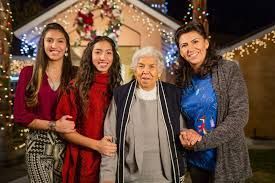Make Valentine’s Day Special for Seniors

Valentine’s Day tends to zero in on romantic love, but what about our seniors? They too often get forgotten. We have some ways to make Valentine’s Day special for them too.
Spend the day with your loved one. Spending quality time with a loved one is more important to a senior than anything else. There is no greater gift than time and please make sure you have enough, so you are not rushed.
Do your elderly loved one have a favorite meal? Perhaps you can prepare it for them, or if they are able, you can prepare it together. How fun would that be for you both? Be sure to discuss the enjoyment it brought you while you are sharing the meal together.
How about a game of name that love song? You could prepare a playlist of love songs from the generation and play them to see how many they get correct. Or, if you can sing, you can sing some for them and see if they can recollect them.
Take some time for reminiscing, go through old photo albums, or ask about old times. Ask them about when you were young and what trouble you caused; this will give you all something to laugh (or cry) about.
Has your loved one been cooped up all winter? Take them out for a nice lunch, or weather permitting, a picnic in the park. Go for coffee and a donut, then head out to see a movie. Make a “date” of it.
Maybe your senior is into crafts. You can design special Valentine’s Day cards for other family members. This way your senior can express their love for them and send it to them in their own unique way. You can create other greeting cards as well.
Bake some special treats together. Does your senior have some favorite cookies or cake? You could bake it together, or you can bake it for them. Then you can enjoy it after you have the meal you prepared together. Yummy, delicious!!
You can watch some romantic movies together if they prefer to stay in the house or the weather isn’t so good. If they like to color, you can buy them some of those large coloring books and you can color together.
Don’t forget the decorations and the flowers! Make the house or apartment as festive as possible. Even if they live in as assisted living community, you can still decorate their room to the nines! Make it as festive as possible!
If you live in another state or can’t be close to your senior for Valentine’s Day, how about sending them a specially crafted care package. You can hand make some gifts, add some photos of family and friends, and send a personally recorded message. You can bake some homemade treats and incorporate some things that are of personal interest to them. This will show how much you care for them and make their Valentine’s Day extra special even if you can’t be with them.
There are so many ways to make Valentine’s Day special for seniors. Let’s not forget about them; make sure to show them they are so loved too!




